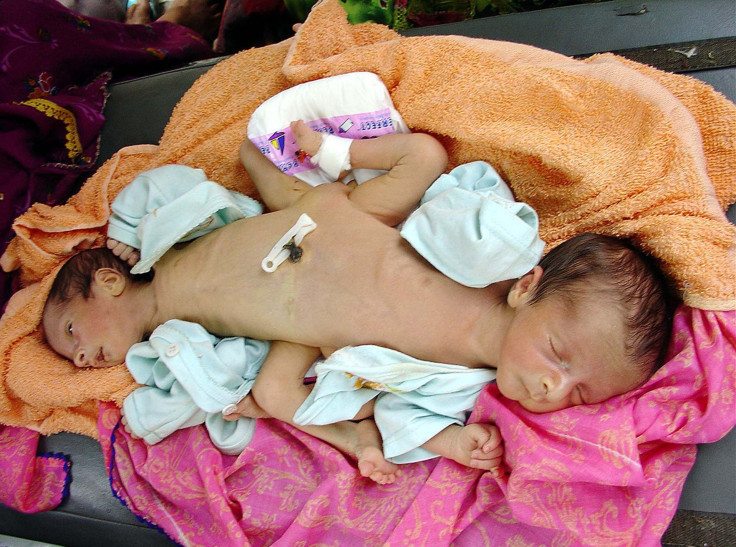Uganda Baby Born With Four Arms, Four Legs Receives Successful Surgery

A baby born with eight limbs — four arms and four legs — underwent a successful surgery under a team of Ugandan doctors in Kampala, Uganda. During the surgery, doctors removed the extra limbs.
Paul Mukisa, the infant, was born with a condition known as parasitic twinning. A conjoined twin never developed properly, and thus left the child with extra limbs. In addition to the extra legs, Paul was born with his heart on the right and his liver on the left, rather than the right. Conjoined twins can occur at the rate of one in 50,000, but parasitic twinning is an extremely rare condition.
Three months after Paul’s birth, three surgeons, three anesthesiologists, and two nurses at Mulago Hospital in Kampala performed a three-hour operation to remove the parasitic twin.
Parasitic twins are also known as asymmetrical or unequal conjoined twins, and occurs when a twin embryo begins to develop in utero but doesn’t fully separate. One embryo develops dominantly, usually at the expense of the other; the dominant twin thus develops normally and is known as an autosite, completely independent from the other twin. In Paul Mukisa’s case, the dependent or parasitic twin didn’t develop a heart or brain, only the limbs.
“The baby was given general anesthesia and the torso and trunk of the parasitic twin, which had two arms but no head or heart, was detached from the host baby,” one of the surgeons, Dr. Nasser Kakembo, said when describing the operation. “Then we also detached the lower limbs of the parasitic twin from the host, which included disarticulating the right and left lower limbs as they were attached by joints. We controled the bleeding and fashioned skin flaps to close the resulting wound.”
Kakembo told FOX News that the doctors didn’t have prior experience with a parasitic twin, but that they worked on “many other children with multiple complex multi-organ congenital anomalies such as intestinal, urologic, cardiac, and orthopedic defects. Although twinning is very rare worldwide, we have an increased incidence in Africa — we [have] seen numerous sets of conjoint twins, five to six sets in the last few years.”
Paul is now recovering at the hospital and is expected to live a normal and healthy life, even though he “may have a wide gait due to the large pelvic bone, and this may require orthopedic reconstruction in the future,” doctors said. His parents, according to Kakembo, were very “grateful because at first they thought it was due to witchcraft, and their baby was a laughing stock because of the abnormalities.”



























